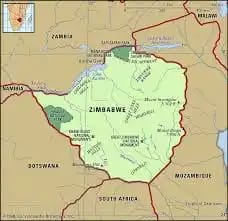Government has announced measures to address the issue of farmers who failed to deliver their crops to the Cotton Company of Zimbabwe (Cottco) during the 2023 selling season.
These farmers, who had received presidential inputs, will now face consequences for their dishonesty, as they will not be given priority when government inputs are distributed for the upcoming 2023/24 season.
Agriculture ministry secretary Obert Jiri made the announcement on Wednesday, emphasizing the need for accountability and responsibility within the farming community.
He stressed that the allocation of the highly sought-after presidential cotton inputs will be given to those farmers who fulfilled their obligations by delivering their crops to Cottco.
“This bold step by the government aims to send a clear message that dishonesty and negligence will not be tolerated. Farmers who fail to honor their agreements and neglect their responsibilities will face the repercussions of their actions”.
“The decision to allocate inputs based on previous performance and commitment ensures that those who have proven to be reliable and responsible will receive the necessary support for the next season.
This move also provides an opportunity for hardworking farmers to be recognized and rewarded for their dedication and adherence to their obligations”.
Cottco’s chief operating officer, Munyaradzi Chikasha, recently called for an investigation into the utilization of inputs under the presidential input scheme, which was introduced a decade ago to boost cotton production. While cotton production almost reached a peak of 140,000 tonnes in the 2020/21 season, it declined to under 60,000 tonnes the following season before slightly rebounding to 90,000 tonnes in the 2022/23 season.
Reports have emerged of farmers selling the inputs, some of which have been recovered by the police from buyers. Additionally, there have been allegations of officials selling farming inputs, such as the case involving former Lands, Agriculture, Fisheries, Water and Rural Resettlement deputy minister Douglas Karoro, who was arrested on accusations of selling items from the Presidential Inputs Scheme.










